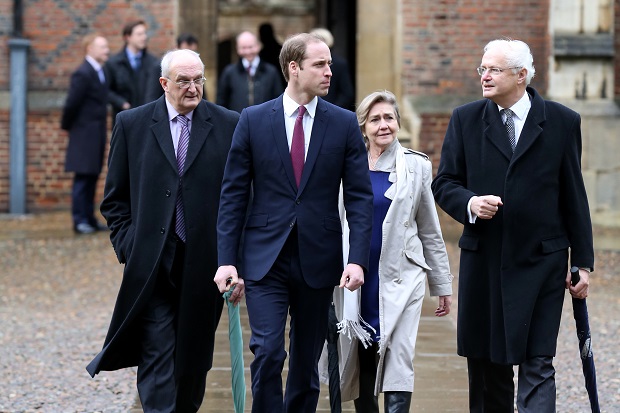Prince William has arrived in Cambridge today to study agricultural management at Cambridge. According to the Guardian his admission is ‘an insult to every student, whatever their background, who got into Cambridge by getting the required A-level or degree results’. The average Cambridge undergraduate had to get A*AA at A-Level to secure their place, but Prince William got one ‘A’, a ‘B’ and a ‘C’.
What no one mentions is that Prince William’s course isn’t an undergraduate one, and neither are his A-Levels his most relevant qualifications. He’ll be studying a ‘bespoke’ concoction run by the Cambridge Programme for Sustainability Leadership. The most similar “commoners’ option” I could find is the Department of Land Economy’s 2-year MSt course in Sustainability Leadership. The sole entry requirement is at least a 2.i honours degree. Prince William has a 2.i degree from St Andrew’s, in the highly relevant discipline of Geography – sounds kosher to me.
Once you’re over the minimum entry threshold, as William is, the Oxbridge admissions system is hard to predict. Unlike at other universities, there’s no separate admissions office: the academics themselves choose the students they’d most like to teach. The applicants with the highest marks don’t always get picked – see Laura Spence’s much-publicised failure to secure a place to read Medicine at Oxford. The academics admitting Prince William will have spent their professional lives researching agricultural management – perhaps they rather fancied the idea of imparting their advice and knowledge to the man who will become Britain’s biggest landowner.
So there’s nothing dodgy about Cambridge giving William a place. There’s no denying, though, that universities’ main motivation in running these taught masters courses is financial. For faculties like Cambridge’s Department of Technology, with which Prince William will be studying, letting fee-paying students buy their way on to taught masters courses is one of the few ways they can fund themselves. Oxford’s internationally renowned Faculty of Oriental Studies is in the same boat – 206 faculty members, but just 41 undergraduates a year (most future Orientalists start off with Classics, History or Modern Languages). Salaries have to be paid and research has to be funded, and wealthy graduate students – usually internationals, rather than royals – bring in a bit of money.
Professor Ross Anderson, of Cambridge’s Computer Laboratory, defended the university’s decision to take Prince William by saying that he and his colleagues ‘sometimes organise special courses for people from industry who want to learn about the latest research in our field. For this we charge them money. Every academic has the right to do this.’ If the Cambridge Computer Lab needs to take a few ‘people who are prepared to pay’ to balance the books, just imagine what the situation must be like in the Theology department.
With so little academic funding available, especially for the Arts, we can’t begrudge universities the acceptance of a few students for financial reasons. It doesn’t affect the undergraduate admissions process, and the best graduates will be able to secure external support. Oxford and Cambridge are primarily centres of research, which has to be paid for somehow.
It’s commendable that Prince William wants to learn to manage the land with which he will be entrusted in a sustainable fashion, and Cambridge have nothing to be ashamed of in taking him. The only disappointment is that our future monarch settled for second-best with his choice of university.







Comments